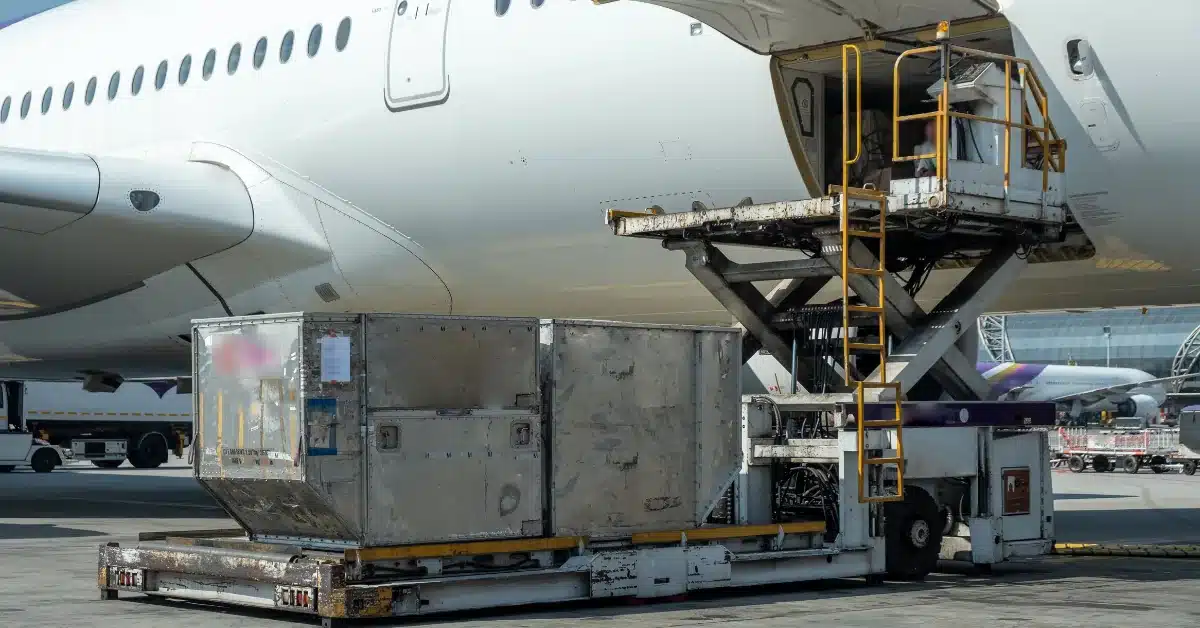7 Essential Facts About Air Freight That Every Business Should Know
Table of Contents
- 7 Essential Facts About Air Freight That Every Business Should Know
- Introduction to Air Freight
- What Is Air Freight?
- Fact 1: Speed and Reliability Are the Biggest Advantages of Air Freight
- Fact 2: Air Freight Costs Are Determined by Weight and Volume
- Fact 3: Air Freight Ensures High Security for Valuable and Perishable Goods
- Fact 4: Air Freight Is Ideal for Global Reach
- Fact 5: Air Freight Requires Detailed Documentation and Customs Clearance
- Fact 6: Air Freight Plays a Key Role in Time-Sensitive Supply Chains
- Fact 7: Environmental Concerns Are Driving Innovations in Air Freight
- Conclusion: Air Freight’s Role in Modern Business Logistics
- FAQ Section
Introduction to Air Freight
Air freight plays a crucial role in global supply chains, ensuring the fast and efficient transportation of goods over long distances. In today’s world, businesses increasingly rely on air freight for time-sensitive shipments that need to be delivered within tight deadlines. From pharmaceuticals to electronics, air freight allows companies to transport high-value, perishable, and urgent goods across the globe in a matter of days. Whether you’re a small business owner or managing a global logistics operation, understanding air freight is essential to optimizing your shipping processes.
In this guide, we’ll explore seven essential facts about air freight that every business should know to make the most of this fast-paced mode of transport.
What Is Air Freight?
Air freight refers to the transportation of goods via airplanes, making it one of the fastest ways to move cargo across large distances. Businesses use air freight to ship goods that are either time-sensitive, high-value, or require safe and secure handling. Unlike other methods of transport such as sea or road, air freight offers speed and reliability, which is why it’s a preferred method for perishable goods, medical supplies, and just-in-time inventory.
Types of Air Freight
There are various types of air freight services, depending on the urgency and size of the shipment:
- Express Air Freight: This service guarantees next-day or two-day delivery and is typically used for smaller parcels.
- Standard Air Freight: This service offers a more cost-effective solution for larger cargo, with delivery typically taking three to five days.
- Charter Air Freight: In cases where specific cargo needs to be transported urgently or outside of regular schedules, businesses can charter an entire airplane.
Fact 1: Speed and Reliability Are the Biggest Advantages of Air Freight
When time is of the essence, air freight stands out as the best solution. Unlike sea or road transport, which can take weeks or even months to deliver, air freight can move goods internationally in just a matter of days. This is particularly advantageous for industries like pharmaceuticals, electronics, and fashion, where time-sensitive goods need to hit the market or reach their destination quickly.
Example:
A global electronics company uses air freight to ship its latest gadgets to international markets within days of production, ensuring they meet high consumer demand while keeping inventory low.
Statistics: According to the International Air Transport Association (IATA), air freight accounts for less than 1% of global trade by volume but over 30% by value, highlighting its importance for high-value, time-sensitive goods.
Fact 2: Air Freight Costs Are Determined by Weight and Volume
The cost of air freight is calculated based on both weight and volume, using a concept called dimensional weight. This means that even if your cargo is light, but it takes up a lot of space on the aircraft, you may be charged based on its volume rather than its actual weight. Companies should consider the dimensional weight when preparing shipments to optimize their cargo and reduce costs.
Key Factors That Affect Air Freight Costs:
- Weight of the Cargo: Heavier shipments will naturally cost more to transport.
- Volume of the Cargo: If the cargo is bulky, but light, it will be charged based on its dimensional weight.
- Distance: Longer routes cost more due to fuel and time.
- Additional Fees: Taxes, fuel surcharges, and customs fees add to the total cost.
Tip: Use an air freight cost calculator to estimate your shipment’s costs based on weight and volume.
Fact 3: Air Freight Ensures High Security for Valuable and Perishable Goods
Air freight is one of the most secure ways to transport goods, making it ideal for high-value shipments such as electronics, jewelry, and pharmaceuticals. Airports have stringent security procedures, and cargo is often tracked in real-time. This significantly reduces the risk of theft or damage during transit.
Example:
A pharmaceutical company ships vaccines via air freight to maintain the necessary cold chain logistics. The speed and security of air freight ensure the vaccines reach their destination without spoiling.
In addition to security, air freight offers specialized solutions for perishable items, such as temperature-controlled environments for food, flowers, and pharmaceuticals.
Fact 4: Air Freight Is Ideal for Global Reach
Air freight connects the world faster than any other mode of transport. With an extensive network of airports, businesses can ship their goods to almost any location on the globe, often within 24-72 hours. This global reach makes air freight indispensable for companies looking to expand their market presence or maintain global supply chains.
Example:
Fashion retailers use air freight to ship seasonal collections across the globe, ensuring that they arrive in stores just in time for the new season’s launch.
Statistics: According to the International Civil Aviation Organization (ICAO), global air cargo traffic amounted to 61.3 million metric tons in 2021, with significant growth expected in the coming years.
Fact 5: Air Freight Requires Detailed Documentation and Customs Clearance
Shipping goods by air requires meticulous documentation, including customs declarations, air waybills (AWB), and commercial invoices. Ensuring all paperwork is completed accurately is critical to avoid delays during customs clearance.
Common Documents Required for Air Freight:
- Air Waybill (AWB): A receipt issued by the carrier to acknowledge the goods’ shipment.
- Commercial Invoice: A document detailing the transaction between the buyer and seller.
- Packing List: A detailed list of all items included in the shipment.
Tip: Work closely with a freight forwarder to manage documentation and ensure smooth customs clearance.
Fact 6: Air Freight Plays a Key Role in Time-Sensitive Supply Chains
Businesses that operate on just-in-time (JIT) supply chain models rely heavily on air freight to maintain their production schedules. In industries like automotive manufacturing or consumer electronics, air freight ensures that parts and components arrive exactly when needed, preventing costly delays in production.
Example:
An automotive manufacturer in Europe uses air freight to quickly ship essential car parts from suppliers in Asia, allowing them to keep their assembly lines running smoothly.
Statistics: Studies show that air freight is responsible for over $6 trillion worth of goods annually, underscoring its importance in modern supply chains.
Fact 7: Environmental Concerns Are Driving Innovations in Air Freight
While air freight offers speed and convenience, it also contributes to carbon emissions. As environmental concerns grow, the air freight industry is exploring ways to reduce its carbon footprint. Many airlines and logistics companies are investing in more fuel-efficient aircraft and alternative fuels to mitigate environmental impact.
Future Trends in Sustainable Air Freight:
- Sustainable Aviation Fuel (SAF): Airlines are increasingly adopting SAF to reduce emissions by up to 80%.
- Electric Cargo Planes: Companies like DHL are testing electric cargo planes to further cut down emissions.
- Carbon Offsetting Programs: Freight forwarders offer carbon offset programs to help businesses neutralize their shipping emissions.
Tip: When choosing an air freight provider, inquire about their sustainability initiatives and how they’re working to reduce environmental impact.
Conclusion: Air Freight’s Role in Modern Business Logistics
Air freight offers unparalleled speed, security, and global reach, making it an essential component of many businesses’ logistics strategies. Understanding the key factors, such as costs, documentation, and sustainability concerns, can help companies optimize their shipping processes. By leveraging the advantages of air freight, businesses can maintain timely delivery, expand their global presence, and ensure the safe transport of high-value and time-sensitive goods.
FAQ Section
- What is air freight? Air freight is the transportation of goods via aircraft, offering fast delivery across long distances for time-sensitive shipments.
- How is air freight cost calculated? Costs are calculated based on the weight, volume (dimensional weight), distance, and additional fees such as fuel surcharges.
- What types of goods are typically shipped by air? Air freight is commonly used for perishable goods, high-value items, electronics, and pharmaceuticals.
- How long does air freight take? Air freight typically takes between 1-3 days for international shipments, depending on the destination and route.
- How does air freight ensure security for valuable goods? Airports follow stringent security protocols, and air freight offers real-time tracking, making it a secure option for high-value goods.





